
It was a sweltering afternoon and we'd been travelling from Cape Town for four hours. Now we were descending into the Boskloof of the Koue Bokkeveld along a serpentine, sandy road with no shade, just low-growing karroid fynbos and Cederberg sandstone formations as far as the eye could see - at least until the heat haze rendered them invisible. The only sound was of the occasional gust of wind whistling through the rock cutting below. The landscape didn't look or sound promising, but I was determined.
You see, I had recently decided that I was going to try this 'birding thing. So, armed with plastic Bushnell binoculars and my Canon SX35, I climbed out of the air-conditioned Kombi, waved the family on and began my slow five-kilometre hike down to the house where we'd be staying. Sunburn, sweat or dehydration - nothing was going to stop me from discovering whatever birds were hiding among the rocks and bushes.
It didn't take me very long to realise that the Koue Bokkeveld is no paradise for birders. In fact, at 15h00 when the temperature is nudging 37 degrees Celsius, it's practically devoid of birds. It was a long trudge with little reward. But then, after a soul-searching descent and on the final straight towards the house, there was a movement in the bushes to my right. I wheeled on the spot, lifted my camera and snapped a shot before the bird disappeared. I hit the review button and there, almost in full frame, was a bird. Which bird? I had no idea. But I had a photo of it.
This story is from the {{IssueName}} edition of {{MagazineName}}.
Start your 7-day Magzter GOLD free trial to access thousands of curated premium stories, and 9,000+ magazines and newspapers.
Already a subscriber ? Sign In
This story is from the {{IssueName}} edition of {{MagazineName}}.
Start your 7-day Magzter GOLD free trial to access thousands of curated premium stories, and 9,000+ magazines and newspapers.
Already a subscriber? Sign In

EXPLORING NEW HORIZONS
Keith Barnes, co-author of the new Field Guide to Birds of Greater Southern Africa, chats about the long-neglected birding regions just north of the Kunene and Zambezi, getting back to watching birds and the vulture that changed his life.
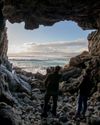
footloose IN FYNBOS
The Walker Bay Diversity Trail is a leisurely hike with a multitude of flowers, feathers and flavours along the way.
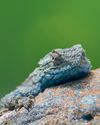
Living forwards
How photographing birds helps me face adversity
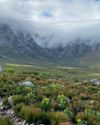
CAPE crusade
The Cape Bird Club/City of Cape Town Birding Big Year Challenge
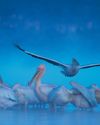
water & WINGS
WATER IS LIFE. As wildlife photographer Greg du Toit knows better than most.
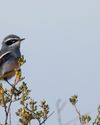
winter wanderer
as summer becomes a memory in the south, the skies are a little quieter as the migrants have returned to the warming north. But one bird endemic to the southern African region takes its own little winter journey.
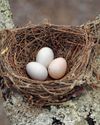
when perfect isn't enough
Egg signatures and forgeries in the cuckoo-drongo arms race

Southern SIGHTINGS
The late summer period naturally started quietening down after the midsummer excitement, but there were still some classy rarities on offer for birders all over the subregion. As always, none of the records included here have been adjudicated by any of the subregion's Rarities Committees.

flood impact on wetland birds
One of the features of a warming planet is increasingly erratic rainfall; years of drought followed by devastating floods. Fortunately, many waterbirds are pre-adapted to cope with such extremes, especially in southern Africa where they have evolved to exploit episodic rainfall events in semi-arid and arid regions. But how do waterbirds respond to floods in areas where rainfall - and access to water - is more predictable? Peter Ryan explores the consequences of recent floods on the birds of the Western Cape's Olifants River valley.
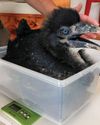
a star is born
It’s every producer’s dream to plan a wildlife television series and pick the right characters before filming.